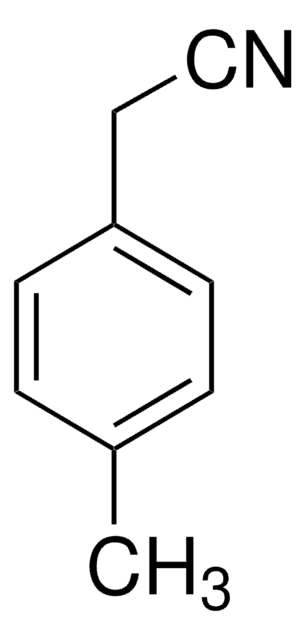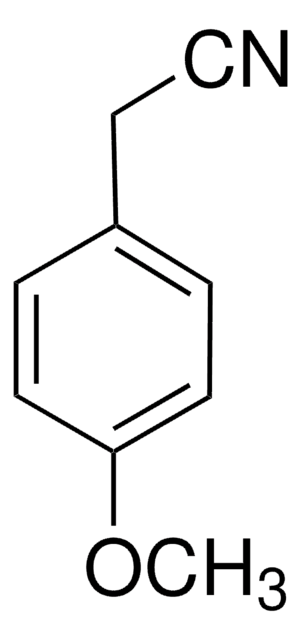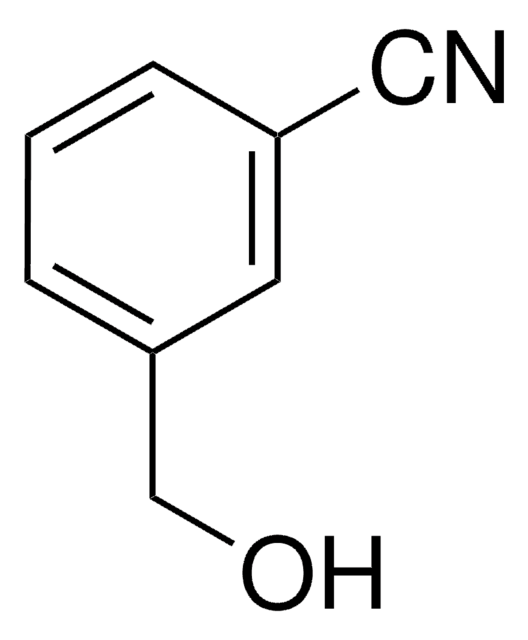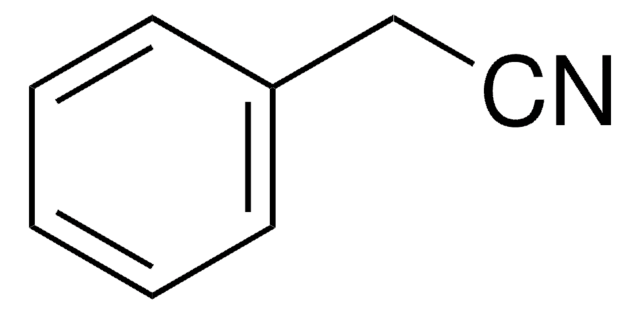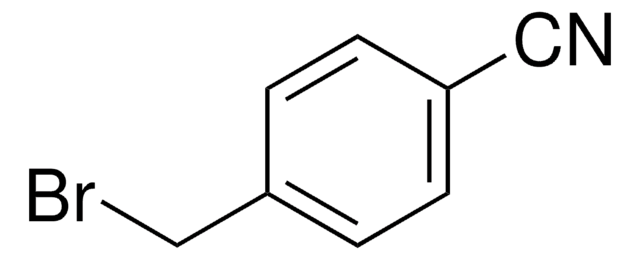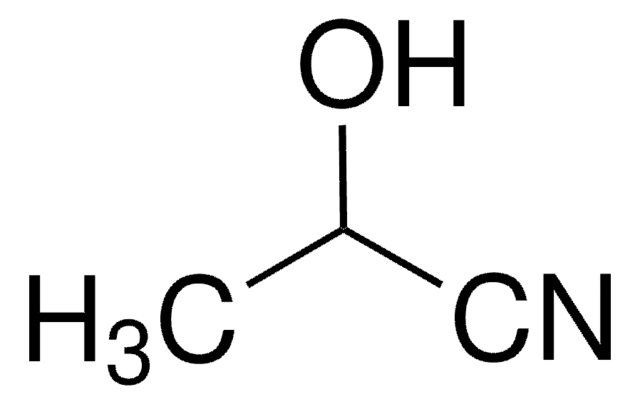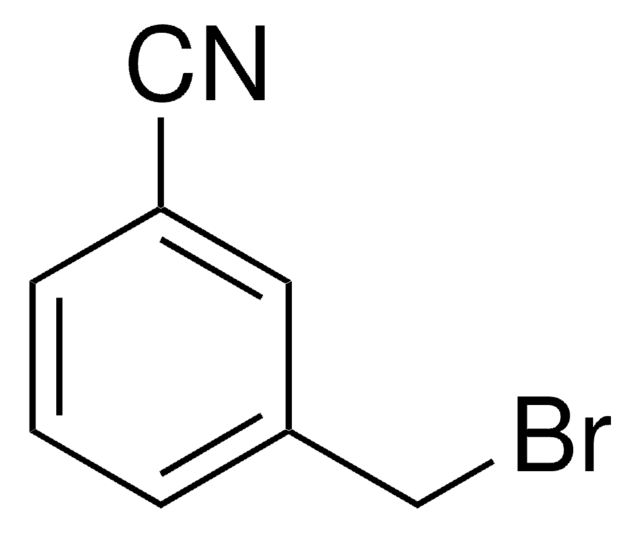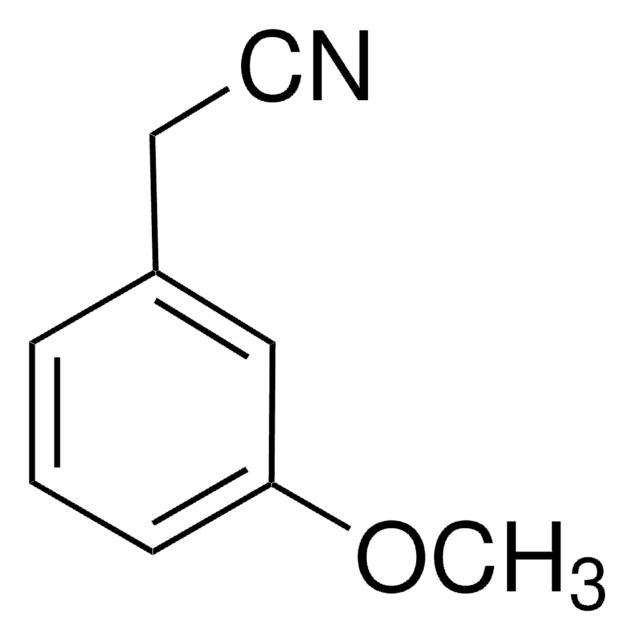M31503
α-Methylbenzyl cyanide
96%
Synonym(s):
α-Methylphenylacetonitrile
About This Item
Recommended Products
Assay
96%
refractive index
n20/D 1.5106 (lit.)
density
0.985 g/mL at 25 °C (lit.)
SMILES string
CC(C#N)c1ccccc1
InChI
1S/C9H9N/c1-8(7-10)9-5-3-2-4-6-9/h2-6,8H,1H3
InChI key
NVAOLENBKNECGF-UHFFFAOYSA-N
Signal Word
Warning
Hazard Statements
Precautionary Statements
Hazard Classifications
Acute Tox. 4 Dermal - Acute Tox. 4 Inhalation - Acute Tox. 4 Oral - Eye Irrit. 2 - Skin Irrit. 2 - STOT SE 3
Target Organs
Respiratory system
Storage Class Code
6.1C - Combustible acute toxic Cat.3 / toxic compounds or compounds which causing chronic effects
WGK
WGK 3
Flash Point(F)
201.2 °F - closed cup
Flash Point(C)
94 °C - closed cup
Personal Protective Equipment
Choose from one of the most recent versions:
Already Own This Product?
Find documentation for the products that you have recently purchased in the Document Library.
Our team of scientists has experience in all areas of research including Life Science, Material Science, Chemical Synthesis, Chromatography, Analytical and many others.
Contact Technical Service